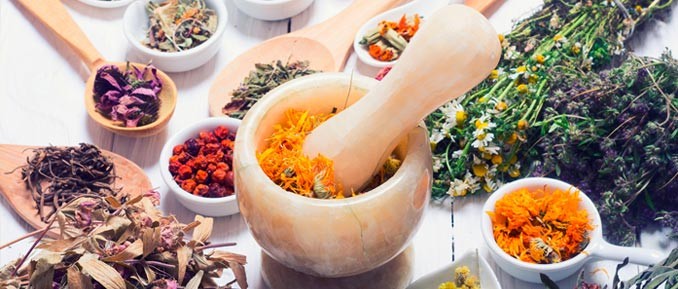
A mixture of herbs used in traditional Chinese medicine may be able to reduce inflammation by adding and removing epigenetic marks on DNA, suggests a study published in Evidence-Based Complementary and Alternative Medicine. This alternative medicinal mixture, termed “Wutou decoction”, consists of six different herbs that have been widely used in the traditional Chinese medicine community to alleviate arthritis and other diseases. Now, researchers believe it may have an effect on epigenetic mechanisms known as DNA methylation and histone modifications, which can control gene expression.
Complementary and alternative medicine has been around for centuries, but, its supposed benefits often draw in skepticism. Although further research is needed to solidify these claims, a recent study sheds some light on the potential of a Chinese herb mixture to alleviate arthritis by triggering epigenetic mechanisms. The mixture contains crude herbs, including red and white peony roots, licorice root, and monkshood mother root.
Researchers induced arthritis in female rats and assessed the epigenetic impact of the Wutou decoction. Using EpiGentek’s MethylFlash Methylated DNA Quantification Kit, the researchers measured global DNA methylation in peripheral blood mononuclear cells (PBMCs).
The DNA methylation level was significantly reduced in the arthritic rats that received the herb mixture compared to those that did not. In addition, the team of scientists found that DNMT1 mRNA expression was significantly reduced in arthritic rats who were administered the Wutou decoction. DNMT, or DNA methyltransferase, is an enzyme that plays a central role in catalyzing the process of DNA methylation.
Furthermore, histone proteins were isolated using EpiGentek’s EpiQuik Total Histone Extraction Kit and then various histone modifications were measured. The total histone H3 acetylation level, which was quantified by the EpiQuik Total Histone H3 Acetylation Detection Fast Kit, was elevated in the arthritic rats that received the herbs versus those that did not.
Overall, the researchers reported that Wutou decoction may modulate DNA methylation and histone modifications, potentially functioning as an anti-inflammatory. These results, while preliminary, suggest that certain alternative medicine could exert epigenetic effects and combat diseases like rheumatoid arthritis.
“[Wutou decoction] may serve as a traditional drug in alleviating disease activity of [rheumatoid arthritis] via DNA methylation and histone modifications,” suggested the research team. However, they still call for additional research, stating that “the methylated loci and other epigenetic changes of [rheumatoid arthritis] need to be investigated to confirm this.”
Although these results by no means establish a concrete understanding of the molecular effects of certain herbs or guarantee their possible positive and negative epigenetic consequences, the data still provide an interesting glimpse into alternative or complementary therapies. It also brings awareness to non-mainstream health practices, which may deserve a more in depth look. With additional rigorous scientific research, our knowledge and understanding of complementary approaches can continue to grow and perhaps lead to the development of novel treatments.
Source: Liu, Ya-Fei et al. (2016). Effects of Wutou Decoction on DNA Methylation and Histone Modifications in Rats with Collagen-Induced Arthritis. Evidence-Based Complementary and Alternative Medicine, doi:10.1155/2016/5836879.


